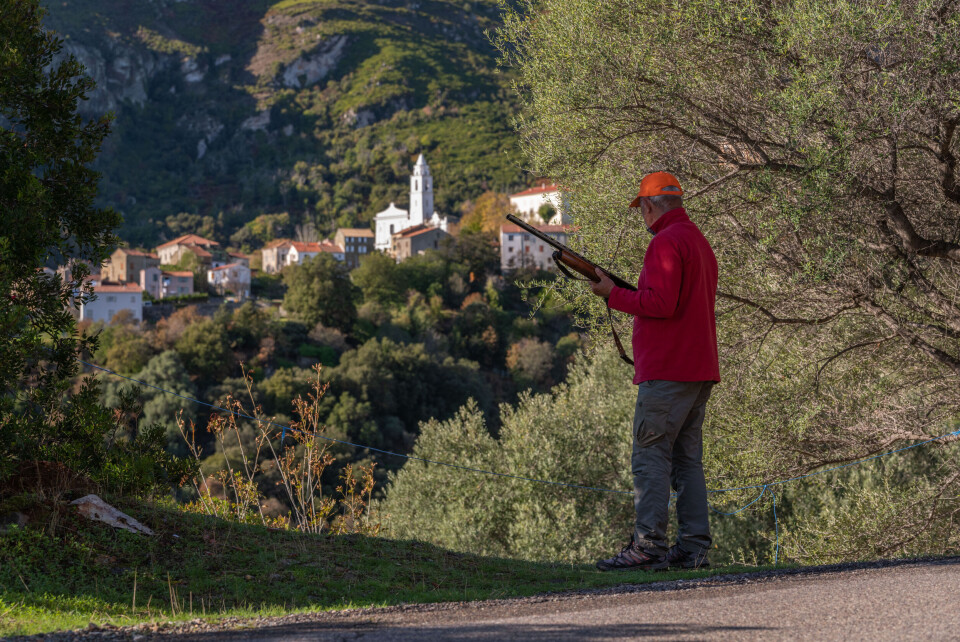-
Letters: The reality of finding a new doctor or dentist in France
Finding a replacement is nigh impossible, says Connexion reader in Lot-et-Garonne
-
The magic of mayonnaise: Why a homemade emulsion always woos guests in France
Plus, which shop-bought mayo brand is best?
-
Letters: Beware the financial cost of losing a spouse in France
Connexion reader faced unexpected expenses and legal hurdles after their partner's death, which added stress to an already difficult time
Hunting in France has its place – as long as it is done responsibly
Nick Inman argues that compromise is everything if hunters want their divisive tradition to continue

Every autumn, the French countryside is taken over by men wearing camouflage clothing, with guns over their shoulders and dogs straining at the leash.
Ask them what they are doing and they might tell you they are maintaining an ancient rural tradition that goes back to prehistoric times, as seen on the walls of the Lascaux cave.
They might even claim a right stemming from the Revolution. Under the Ancien Régime, only nobles could hunt. Since 1789, it has been an egalitarian activity.
Popular pastime
In the modern day, France has more hunters than any other European country. More than a million people (97.5% of them men) will go a-killing this autumn and winter and they have massive support.
Altogether, five million people hold, or have held, a hunting licence: that is 7.4% of the population.
The case for
Hunting is highly organised, with a national federation that is expert at reminding politicians of its virtues.
There is nothing to be gained by tougher regulation, the federation argues, and everything to be lost. Hunting, it claims, creates almost 30,000 jobs and brings nearly €400million to the deprived countryside.
Hunters feel they are unfairly misrepresented by townies and interfering ecologists who would curb their pleasure.
To suggest that hunting is detrimental to the countryside is to wilfully misunderstand it. Far from wreaking havoc in a frenzy of bloodlust, hunters believe they are doing a public service by keeping the numbers of pest species under control.
Camaraderie
When hunters are asked in surveys what motivates them, they rarely mention the satisfaction of the kill. Instead, they cite a love of nature and camaraderie in the fresh air above all else.
I asked one young man why he went hunting. He told me that his parents were separated and his dad was a long-distance lorry driver. This was the only way he was able to spend quality time bonding with him without women and younger siblings in the way.
Stalking animals, he said, is a social occasion: it brings men of all ages and backgrounds together at the weekend.
The case against
Objectors to hunting, however, do not see this as a sufficient excuse for persecuting wild animals. They are becoming ever louder and coherent in their counter-arguments.
Not all of them are city-dwellers, ignorant about the countryside. For them, the problem is that the hunting lobby is too powerful. Why, they ask, should hunters have everything their own way? They should at least be more honest about the downsides of what they do.
Irresponsible hunting tramples fields, woodland undergrowth and even gardens; it leaves behind it spent cartridges and other litter.
Protected species of wild animals and sometimes domestic pets are killed “by accident”.
More seriously, every season a number of human beings are hit because of misdirected bullets. Last year, eight people died directly because of hunting.
Read more: British woman dies after being accidentally shot during Brittany hunt
‘Conscientious’ hunting
It is easy to take an extreme position here, for or against, and not to listen to the other side.
There is a place for hunting, but hunters must not be able to cast themselves as the true and only custodians of nature.
It is important to sort out “conscientious” hunters from those who do not think about the issues of environmentalism and conservation at stake.
If you want to understand hunting and decide for yourself, collect a range of views and talk to atypical people on both sides.
One female hunter I know, for instance, has her own code of conduct which she passes on to her students at the lycée agricole where she teaches.
She keeps her excursions to a minimum and endeavours to have as low an environmental impact as possible. She only kills what she can eat – which means one wild boar a year.
Hunting is an ancient tradition but every tradition must make compromises with modernity.
Responsible hunting is an integral part of the French countryside; irresponsible hunting is not.
Related articles
How often do hunting accidents happen in France?
45,600 sign petition for two hunt-free days in France
‘If it’s not 100% safe, don’t shoot’: My hunting experience in France
























